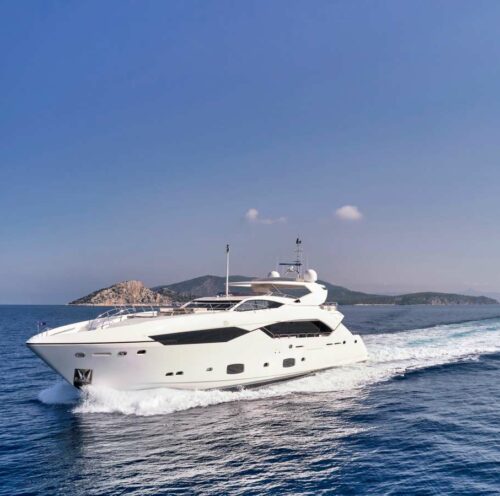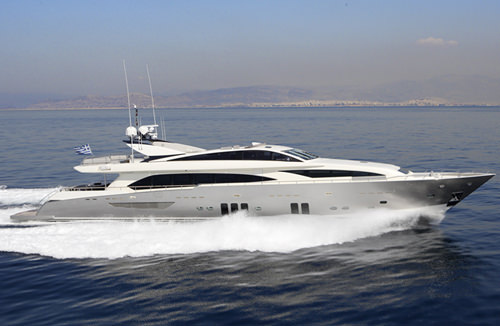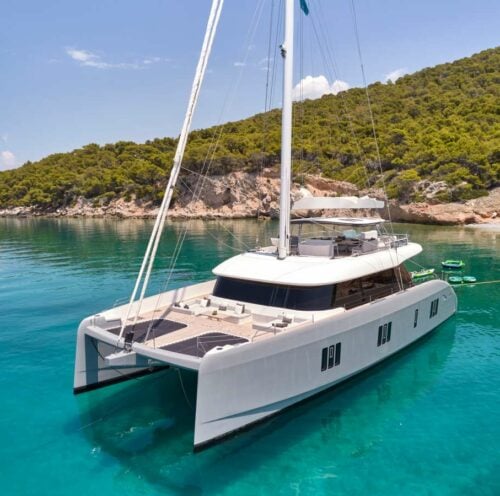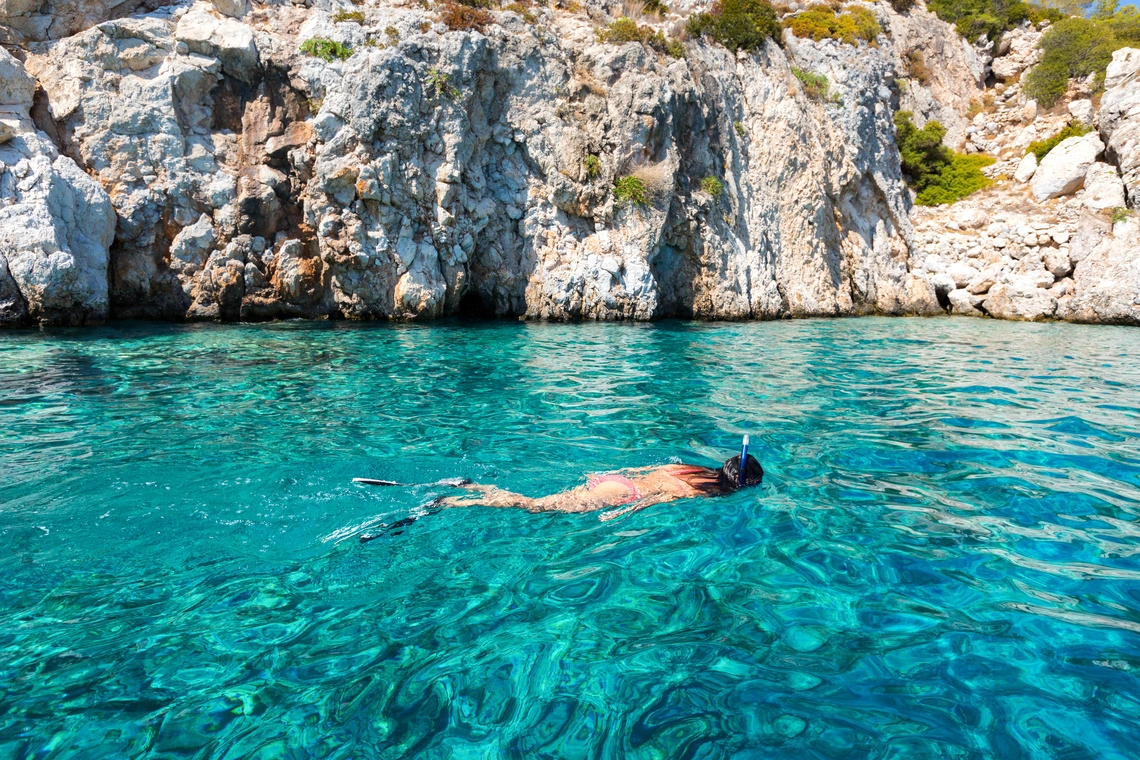
Greece Information for Your Yacht Charter
Greece’s general information from geography to climate to currency. In addition, here’s some information you might find helpful when traveling in Greece.
Geography
The country comprises the continental segment (Attica, Pelopónnisos, Central Greece, Thessaly, Epirus, Macedonia, and Thrace) and the Aegean and Ionian Seas islands. You can visit many islands in the Aegean Sea, such as those in the northeast, the Sporades Islands, the Cyclades Islands, and the Dodecanese Islands. In addition, there are also more isolated islands in the south, such as Crete.
Greece General Information | Greek Islands
- Cyclades Islands
- The Sporades Islands
- The Dodecanese Islands
- The Saronic Gulf Islands
- Ionian Islands
- Crete Island.
The Cyclades Islands
The Cyclades Islands consist of 39 islands, 24 of which are inhabited. Santorini, Mykonos, Ios, and Paros are the most famous Cyclades Islands.
The Sporades Islands
The Sporades, situated along Greece’s central mainland and Evia, have kept the authentic island habitat and tradition. Much has remained the same over the centuries. Skiathos and Skopelos are two famous islands.
The Dodecanese
The Dodecanese is made up of twelve large islands and other smaller ones. Each has its unique characteristics and charm. Rhodes and Kos are two of the top islands in this group, which are close to Turkey.
The Saronic Islands
Finally, the ocean stretching from Attica to the Peloponnesian coast has another group of small islands in the Saronic Gulf. The most famous are Spetses, Hydra, Poros, and Aegina.
Ionian Islands
The Ionian Islands also have the name “Heptanese,” meaning the seven islands. Located on the western side of Greece, the islands of the Ionian Sea are famous for their gorgeous beaches and lush greenery. Some popular islands include Corfu, Kefalonia, Zakynthos, and Lefkada. There are also several other secluded islands.
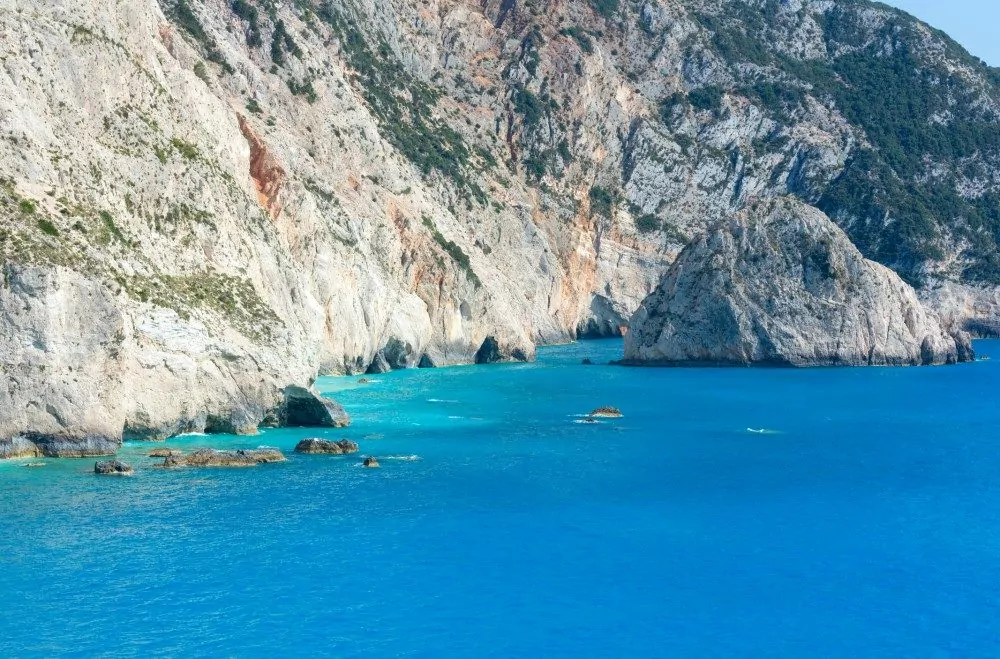
Greece General Information | Climate
The vegetation and climate go hand in hand with the geographic diversity of Greece. In fact, the variety of vegetation is extraordinary. Also, there are more than 6000 indigenous plants, with two hundred and fifty just in Crete.
This vast quantity is a result of the geographic positioning of Greece, located between the continents of Europe and Africa. The trees, for example, are of medium size, where you will find various species of pines, oaks, olives, fruit, and palms in abundance.
The geographic positioning also allows for alternating weather patterns. In addition, there are cold winters and warm summers that are cooled by prevailing winds called the “Meltemi.” Most of all, the most prevalent characteristic of the climate in Greece is the ever-present sunshine.
There are more than 3000 sun hours per year. However, the heat in the summer can be intense, especially in the southern islands, with water temperatures ranging from 25 to 28 degrees from June to October.
Greece General Information | Seasons
- Low season: October to April
- Middle season: May, June, and September
- High season: July and August
Please note that this will vary for some Greece yacht charter rates. July and August are the busiest months on the islands. Here are a few yachts that are recommended for these Months.
-
MAKANI II
€110,000 – €125,000 Per week Greece -
DRAGON
€105,000 – €115,000 Per week Greece + 1 others -
AETHER
€30,500 – €40,500 Per week Greece -
ABOVE & BEYOND
€50,000 – €70,000 Per week Greece
Greece General Information | Marina Locations and Starting Points
- Athens, Lavrion, and Poros: the starting point to Saronic Gulf and Cyclades (Naxos, Paros, Santorini, Mykonos)
- Rhodes, Kos, and Samos Island: the point of departure to Dodecanese or Turkey (Bodrum and Marmaris)
- Skiathos, Milin: the starting point to Sporades (Skopelos, Skyros)
- Corfu, Lefkada, and Patras: the starting point to the Ionian Sea (Paxos, Zakynthos)
Greek Currency
Greece’s currency is the Euro. Since this is the single currency that countries in the Eurozone use, you will also be able to use this one currency in other countries such as Italy. The Euro is available in both coin and note denominations.
Language
The official language is Greek. While many Greeks in tourist areas speak English, it’s helpful to learn a few basic Greek phrases as a sign of respect and to facilitate communication. Here are a few examples:
Kalimera (Καλημέρα) – Good morning – Kah-lee-MEH-rah
Kalispera (Καλησπέρα) – Good evening – Kah-lee-SPER-ah
Yasou (Γειά σου) – Hello – Yah-SOO
Efharisto (Ευχαριστώ) – Thank you – Ef-hah-REES-toh
Parakalo (Παρακαλώ) – Please/You’re welcome – Pah-rah-KAH-loh
Ne (Ναι) – Yes – Neh
Ochi (Όχι) – No – OH-hee
Signomi (Συγγνώμη) – Excuse me/I’m sorry – Seen-GNO-mee
Poso kostizi? (Πόσο κοστίζει;) – How much does it cost? – POH-soh KOS-tee-zee?
Pou einai i toualeta? (Πού είναι η τουαλέτα;) – Where is the restroom? – Poo EHN-eh-ee ee too-AH-leh-tah?
Cultural Etiquette
Greeks are famous for their warmth and hospitality. Greeting people with a handshake and maintaining eye contact during conversations is customary. The customary tip is 5-10% of the bill in restaurants and cafes.
Local Cuisine
Greek cuisine is famous for its Mediterranean flavors. Try dishes like moussaka, souvlaki, gyros, and fresh seafood. Many islands have their specialties. Remember that dining in Greece can be a leisurely affair, with meals lasting several hours.
Historical Sites Greece General Information
Visit Greece’s ancient ruins and historical sites to discover its fascinating history. For instance, the Acropolis in Athens is a famous hill with an impressive Parthenon temple, which shows the amazing architecture of the ancient Greeks.
In Crete, you can explore the Palace of Knossos, a complex place with beautiful paintings that tell us about the past. And on Delos Island, there’s the Sanctuary of Apollo. There you can see ancient statues and remains of important buildings that tell stories about the island’s past as a religious and cultural hub.
Government
The Greek governmental system operates within a parliamentary republic framework. Its President serves as the symbolic head of state, while a Prime Minister assumes the role of head of government and manages daily affairs.
Greece’s government is closely linked to democracy and part of the European Union (EU).
Respect for Religion
Greece has a strong Orthodox Christian tradition. When visiting churches or monasteries, dress modestly (covering shoulders and knees) and respect ongoing religious ceremonies.
Transportation in Greece General Information
Public transportation is well-developed, especially in larger cities like Athens. Buses, trams, and the metro are common modes of transportation. For more remote areas or islands, consider renting a car or using local taxis.
Health and Safety
Greece is generally safe for travelers, but like any destination, it’s important to be cautious. Keep an eye on your belongings, especially in crowded tourist areas. Make sure you have travel insurance that covers medical expenses.
Sun Protection
The Mediterranean sun can be intense. So, use sunscreen, wear a hat, and stay hydrated, especially during the peak summer months.
Time Zone
Greece operates on Eastern European Time (EET) during standard time and Eastern European Summer Time (EEST) during daylight saving time. It is also two hours ahead of Coordinated Universal Time (UTC+2).
Best Souvenirs to Purchase | Greece General Information
The country offers a wide range of unique and cultural souvenirs that can serve as wonderful mementos for your trip. Here are some of the best souvenirs to consider bringing back:
- Olive Oil: Greece produces high-quality olive oil. Look for locally produced extra virgin olive oil, often sold in decorative bottles.
- Ceramics and Pottery: Greek pottery has a rich history and comes in various forms, from traditional amphorae to modern ceramic pieces.
- Greek Honey: Greece’s diverse landscape leads to various honey flavors. Try thyme, pine, or wildflower honey, often available in beautifully packaged jars.
- Handmade Jewelry: Greek jewelry often incorporates ancient symbols and designs. Consider buying pieces made from silver or gold that showcase the country’s heritage.
- Greek Spirits: Traditional spirits like ouzo and tsipouro make unique and flavorful gifts. Look for bottles with distinctive packaging.
- Textiles and Embroidery: Handwoven textiles, such as scarves, tablecloths, and traditional costumes, showcase the rich tapestry of Greek culture.
- Sea Sponges: Sea sponges are a popular and practical souvenir, often used in bath and body products.
- Wine: Greece produces some excellent wines, especially from regions like Santorini. Look for local grape varieties and unique blends.
When purchasing souvenirs, support local artisans and businesses to ensure your money goes directly to the communities you’re visiting. Remember that some items, such as archaeological artifacts, are strictly regulated and may require special permits for export. Always check the local regulations and guidelines before making a purchase.
Don’t forget to make a list of Greece Yacht Charter Attractions that you want to see.
